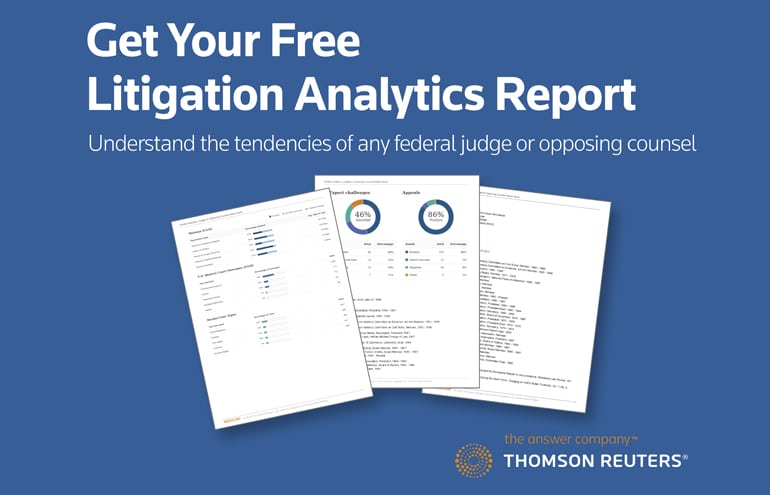When it comes to litigation, attorneys who can successfully predict the actions of opposing counsel or their assigned judge have a distinct competitive advantage in the outcome of the case. Reviewing the paper trail of their previous legal activities can give you valuable insight into how they may act in the future.
Judges and attorneys still have the capacity to surprise, but they will typically stick to their established patterns and knowing them can significantly enhance your case strategy and eliminate some of the uncertainty of litigation.
Knowing Opposing Counsel
Understanding opposing counsel’s prior behavior provides valuable insight into their experience, their use of authorities, their settlement history, and preferred styles of argument. Some key insights that are critical to understand include:
- What is opposing counsel’s experience with this type of matter and the assigned judge?
- How do they typically structure their motion practice?
- How likely is it that opposing counsel will settle?
It is highly likely that the attorney will continue these same behaviors in the future. Having this background information can help you develop your litigation strategy and begin to prepare for the most likely scenarios, greatly minimizing your chances of being surprised by opposing counsel’s actions and arguments.
Understanding Your Assigned Judge
Understanding the previous rulings of a judge, their approach and experience, and the authorities they tend to cite can positively influence your case strategy and litigation outcome. Valuable information to know about your assigned judge includes:
- Does the judge tend to rule pro plaintiff of pro defendant on your specific case type or motion?
- What factual scenarios and/or arguments does your assigned judge find favorable or unfavorable?
- How often has the judge admitted or excluded expert testimony?
This information can help you identify the most successful and persuasive arguments that appeal to a judge and understand what types of arguments to avoid.
Building Your Litigation Strategy with Litigation Analytics
Court records hold memoranda, briefs, and other filings with arguments submitted by an opposing counsel and court dockets contain the rationale for each of the judge’s decisions. But, the time and effort required to comb through these data records is highly prohibitive.
Now, thanks to artificial intelligence technologies this analysis can be done without hours of manual research and the results are presented in an organized and easy-to-digest manner. Litigation Analytics, fully integrated into Thomson Reuters Westlaw Edge, offers this valuable solution.
Westlaw Edge Litigation Analytics helps you identify:
- If a judge tends to rule pro plaintiff or pro defendant for certain types of cases and motions
- How different courts tend to rule on cases and major motion types for section of venue
- Time-to-rule information for various types of motions
- The factual scenarios and arguments that are favorable or unfavorable for a specific judge
- Opposing counsel’s experience with this type of matter and their typical motion practice
- And, much more …
“With Litigation Analytics, we can take advantage of quantitative data derived from precedent. Our clients are impressed with our ability to attain data on judges or opposing firms.” – Ryan Matthew Lawrence, Associate at Anthony Ostlund Baer and Louwagie
Test It Out: Free Litigation Analytics Report
See what valuable insights you can get with Litigation Analytics on Westlaw Edge and take the uncertainty out of your litigation strategy.
Request a FREE Litigation Analytics Report on the federal judge or opposing counsel of your choice today.
SPONSORED CONTENT. Product Spotlight showcases content provided by Attorney at Work sponsors and advertisers. This does not constitute endorsement by Attorney at Work. See Terms and Conditions for more information.

















